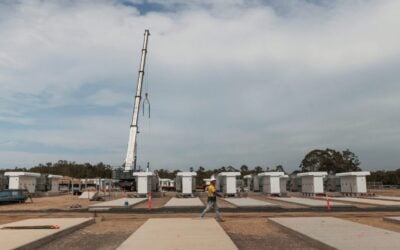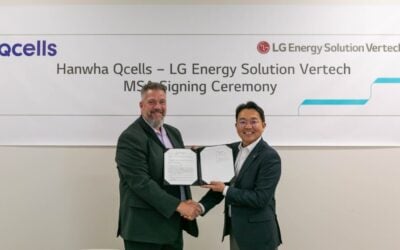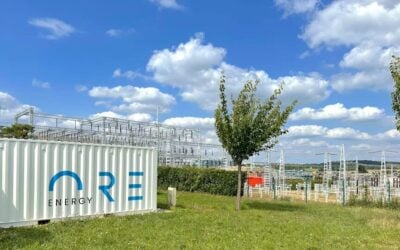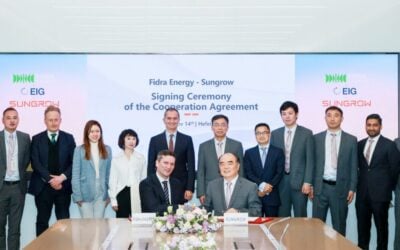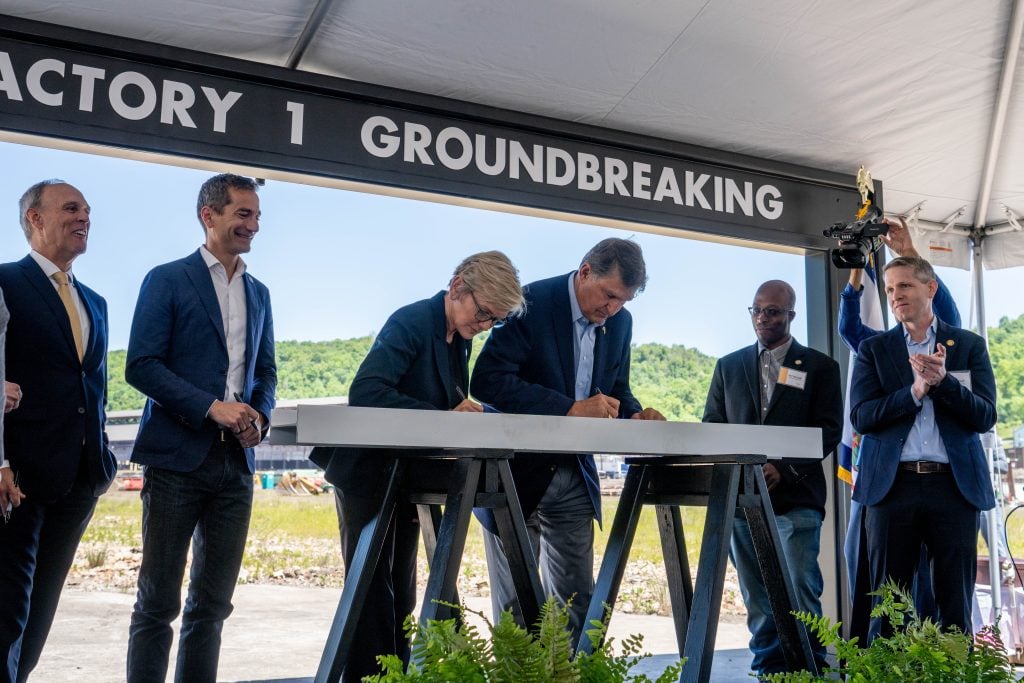
Work has begun on the first pilot project using Form Energy’s iron-air battery, designed to cost-effectively store and discharge energy over multiple days.
The much-talked-about US startup’s proprietary technology is based on the oxidisation (rusting) of iron. Its first-ever project is being built with electricity supplier Great River Energy in Cambridge, Minnesota.
The two companies said last week (15 August) that groundbreaking has taken place on the Cambridge Energy Storage Project, set to go into operation in late 2025.
Great River Energy, a non-profit cooperative, will evaluate the iron-air battery system’s operation over ‘several years’—the exact length of the assessment was not specified in last week’s announcement.
Try Premium for just $1
- Full premium access for the first month at only $1
- Converts to an annual rate after 30 days unless cancelled
- Cancel anytime during the trial period
Premium Benefits
- Expert industry analysis and interviews
- Digital access to PV Tech Power journal
- Exclusive event discounts
Or get the full Premium subscription right away
Or continue reading this article for free
While it has since been joined by a number of other pilot deployments announced by Form Energy, the Minnesota project was the first the tech company revealed back in mid-2020 as it emerged from stealth mode and before it even disclosed the battery chemistry a few months later.
‘Renewables as baseload’
The company’s CEO, Mateo Jaramillo, spoke with Energy-Storage.news for interviews as Form emerged from stealth mode, claiming that the battery could complement the roles of lithium-ion (Li-ion) and other technologies like flow batteries and pumped hydro, enabling renewable energy to serve as ‘baseload’ for the grid.
This is due not only to its capability of providing several days’ worth of storage, but also the abundant materials used in its production, which Form claim enable low cost of production.
The project with Great River Energy will be a 1.5MW system with 100-hour duration (1500MWh). That’s somewhat revised from the originally announced sizing, of 1MW to 150-hour duration, albeit with the same megawatt-hour capacity.
Other projects in the works for the iron-air battery include a system of 8.5MW/8,500MWh, to be built in Maine, US, supported by federal Department of Energy funding and announced earlier this month.
That project will receive a share of DOE funding for reinforcing and upgrading transmission networks across the US. It is part of Power Up New England, a transmission project across the states that comprise the region, aimed at increasing the New England ISO’s capacity for integrating renewables, with 4.5GW of new wind energy earmarked for deployment.
Others in the works from Form Energy include pilots with utilities Xcel Energy, also in Minnesota, Georgia Power in the southern state of the same name and Puget Sound Energy in Washington, as well as Pacific Gas & Electric (PG&E) in California.
The startup is currently building its first factory in West Virginia, where the company said the iron-air system for the Great River Energy pilot will be manufactured soon. Minnesota-headquartered construction group Mortenson has been appointed for engineering, procurement and construction (EPC) duties.
“We hope this pilot project will help us lead the way towards multi-day storage and potential expansion in the future,” Great River Energy general manager Cole Funseth said.

